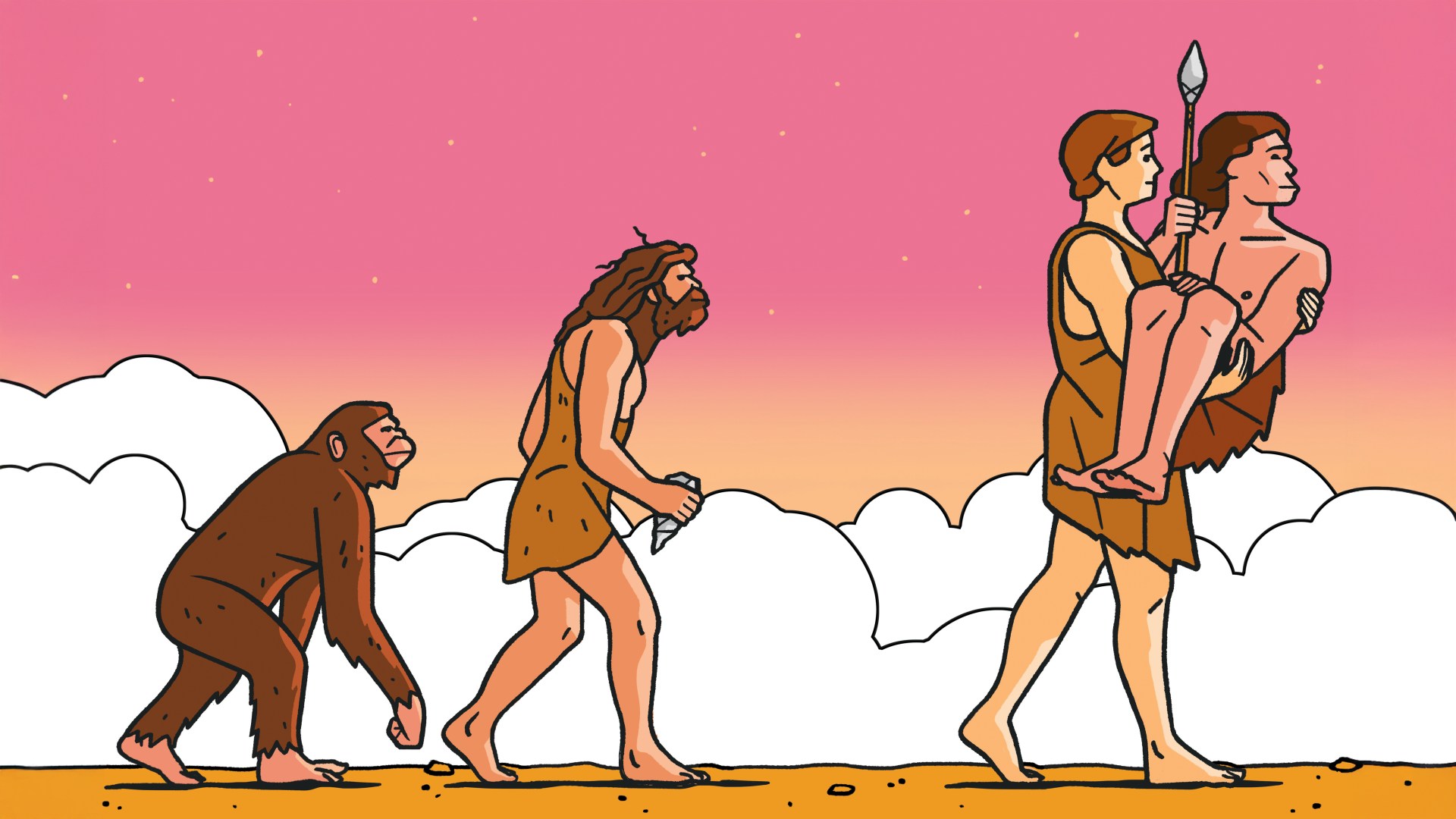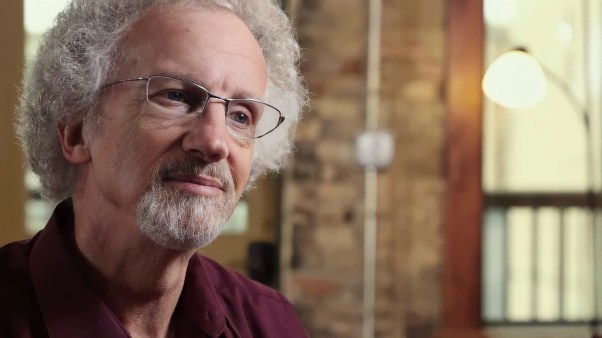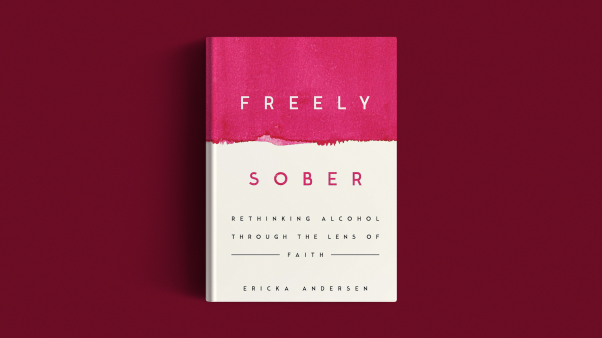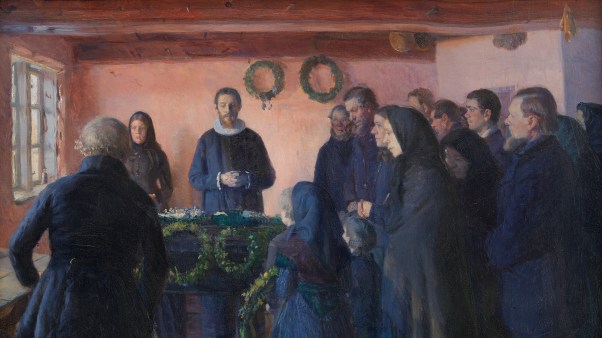A hundred years ago in Dayton, Tennessee, high school teacher John Scopes was put on trial for violating the state’s law against teaching evolution in public schools. The widely publicized state trial—the first to be nationally broadcast via radio in America—encapsulated the fundamentalist-modernist controversy of the time.
Nobody wants a new Scopes Trial in 2025. But maybe we need one.
For anti-evolution evangelicals, Scopes’s guilty verdict was a short-term victory that led to a long-term defeat, as S. Joshua Swamidass recently detailed for CT. It snowballed into the decay of American evangelicalism’s external credibility and led to internal vulnerability toward an anti-intellectual, populist view of science.
Prohibition, another 1920s pain point, was a disastrous experiment that empowered bootleggers and mobs. Still, the instinct behind it—that substance abuse devastates families and communities—was not wrong. We don’t ridicule the Alcoholics Anonymous meeting in our church basement just because Carrie Nation took an axe to a tavern or our childhood pastor argued that the wine at Cana was really grape juice. In the same way, we can recognize the right instincts of the concerns about Darwinism at the Scopes Trial without adhering to a firmly literalist interpretation of the Bible.
William Jennings Bryan, who argued for Scopes’s prosecution, believed that the teaching of Charles Darwin’s evolution theory was the cause of many of modernity’s ills. Bryan may have been made a mockery of on the “Monkey Trial” stand, but he feared that a survival-of-the-fittest mentality was slowly undergirding society. He believed that Darwinism championed a vision of humanity in which the code of the jungle replaced the Sermon on the Mount.
“The Darwinian theory represents man as reaching his present perfection by the operation of the law of hate,” Bryan said. “Evolution is the merciless law by which the strong crowd out and kill off the weak.” That’s exactly what we’re witnessing today.
For years, some Christians have argued that a woodenly literal interpretation of Genesis, joined with scientific acrobatics, would protect the church from a slippery slope into naturalistic Darwinism. Yet many who believe that some form of evolution was involved in creation and who accept the scientific consensus on the vast age of the cosmos have proven to be the most effective opponents of Darwinism’s reductionistic materialism, which strips down the universe to mere matter and human beings to mere animals.
At the same time, some of those who trumpet their resistance to theistic evolution have adapted quite readily to a number of social Darwinism’s conclusions—whether in dismissal of the constant biblical calls to care for the poor and the vulnerable, or in the most extreme sectors of the very-online “Christian” manosphere, where we find the outright embrace of Kinism, eugenics, and even a kind of Naziism.
Much of the gender debate among Christians has devolved from disputes about the meaning of Pauline texts for the church and home into grand “natural law” metanarratives, in which male and female roles determine virtually everything. This is far closer to social Darwinism than to the created order of the biblical canon. A thin veneer of biblical proof texts overlays a “caveman stronger than cavewoman” argument or “caveman wired to spread his seed, woman must not tempt him” rhetoric that is far distant from the biblical language of the created co-heirs of Adam and Eve.
Some on the left love to say that “Christianity must move beyond the supernatural or die,” while some on the right say, “Christianity must know what era we’re living in and ditch empathy.” Most of us would refute both of these perspectives, but for all of us, the pull to an invisible theistic social Darwinism is always present.
We are tempted to adopt the viewpoint that the size of our churches or movements is an indicator of their truth or merit, applying a kind of prosperity gospel to congregations or political ideologies that we rightly resist applying to individuals. As the Jurassic Park movies remind us, what we see as tamable and containable can grow up and bite. We have strained a fossilized gnat while swallowing a fossilized camel.
I am not a young-earth creationist. But here’s where I agree with them: The Bible is the final word on everything, including on God’s presence and work in creation, and we shouldn’t pile additional requirements on top of it. If people are offended by the gospel, they should be offended by what it really asserts, not by contrarian idiosyncrasies that signal tribal allegiance.
Jesus’ teachings simply don’t make sense on evolutionary terms. From the perspective of social Darwinism, loving your kin and hating your enemies seems logical—yet Jesus calls us to follow him in doing the opposite. Likewise, early Christian churches trying to influence a pagan Roman Empire would have appeared wise to make much of those with cultural or economic influence who were interested in the faith. But our Lord’s brother tells us, “Has not God chosen those who are poor in the eyes of the world to be rich in faith and to inherit the kingdom he promised those who love him?” (James 2:5).
This inversion of worldly wisdom is not peripheral—it’s the marrow of the gospel. In a world conditioned by evolutionary advantage and our sinful nature, which desires power at the expense of pushing others down, the gospel calls us to cruciform weakness.
The gospel shows us that focusing on the “losers,” as defined by the standards of this present age, is how we model and become like Jesus (Luke 9:48), how we gain eternal treasures (14:12–14), and how we worship God in Spirit and in truth (Acts 10:4). The woman with dementia, whose hand we hold and to whom we sing hymns, is not defined by her usefulness. The prisoner on death row who cannot tithe or lead evangelistic crusades is worth our attention. The man with an ALS diagnosis should not be tempted to contemplate assisted dying because he fears being a burden to those around him.
The strangeness of a church that doesn’t invest in people who might help it, but rather chooses to serve those who never can, is the very strangeness that upended the first-century world. Nothing could have seemed more alien to the atmosphere of Caesars and heroes than a community who would rather be crucified than be crucifiers, who welcomed those who seemed naturally selected for failure.
Whatever our views on how evolution and the fossil record fit with the Book of Genesis, every Christian ought to agree that Bryan’s concern about Darwinism as an all-encompassing ethic is indeed contrary to the way of the gospel.
Science and the Bible are often put into artificial cage matches with each other. Yet the sheer strangeness and mystery of what science now shows us—from black hole cosmology to quantum mechanics—ought to convey that making the Bible “fit” current scientific narratives is myopic. We may not even have the language yet to describe the wonders God has waiting for us to discover.
In the meantime, we can bear charitably with one another on some disagreements. But when it comes to whether a person’s worth is defined by strength or power or usefulness alone, let the church say with one voice, “You cannot serve both God and Darwin.”
Russell Moore is editor in chief at CT.



















